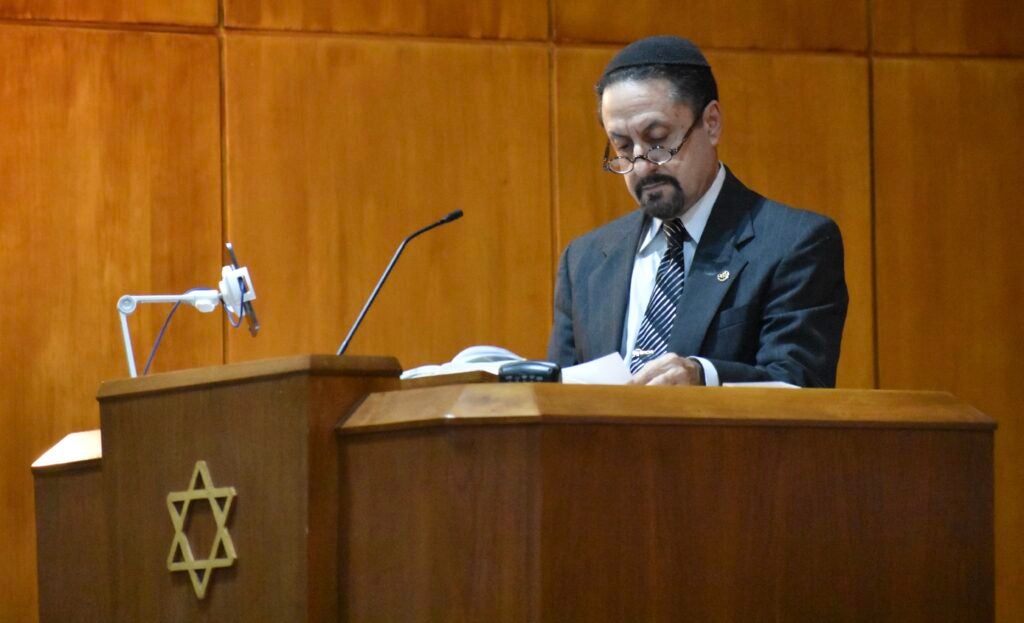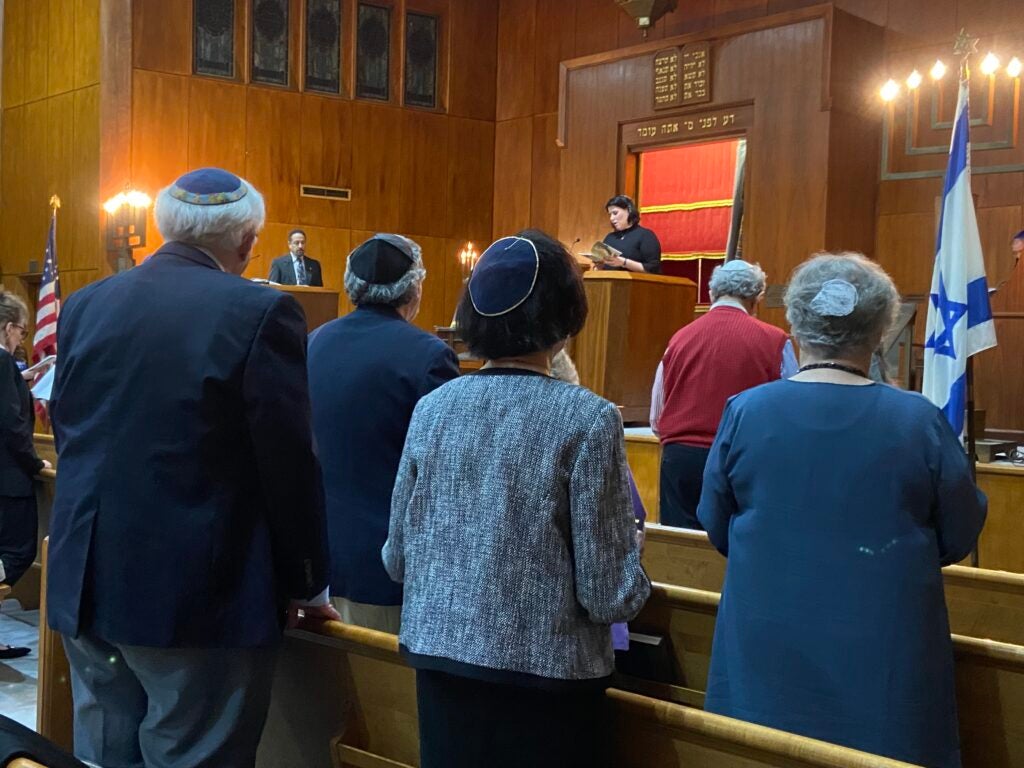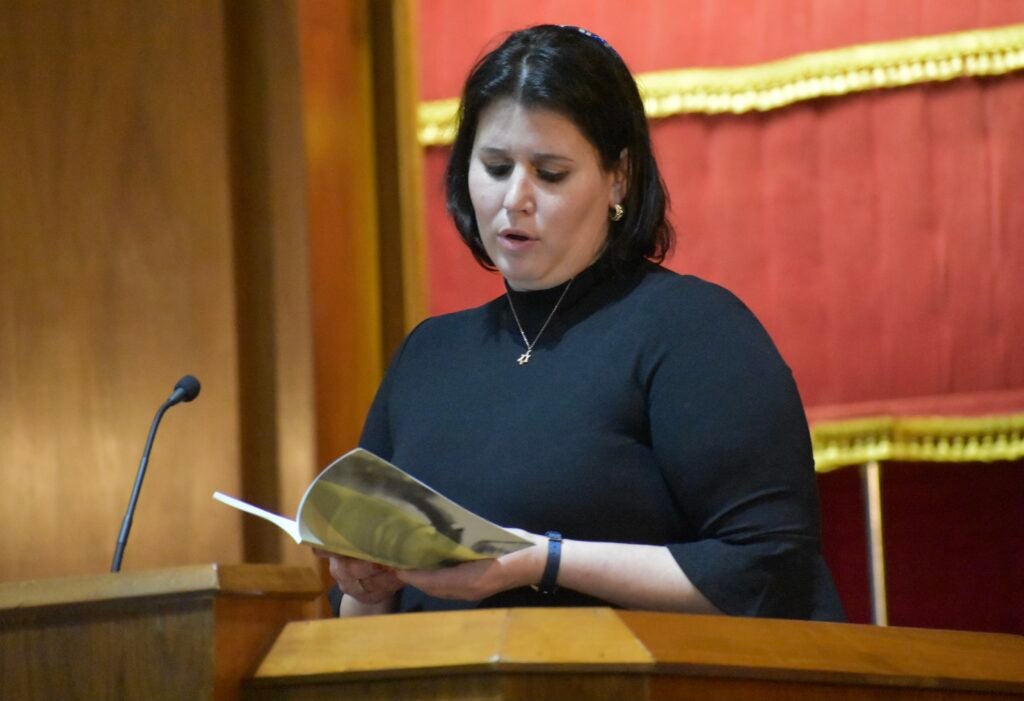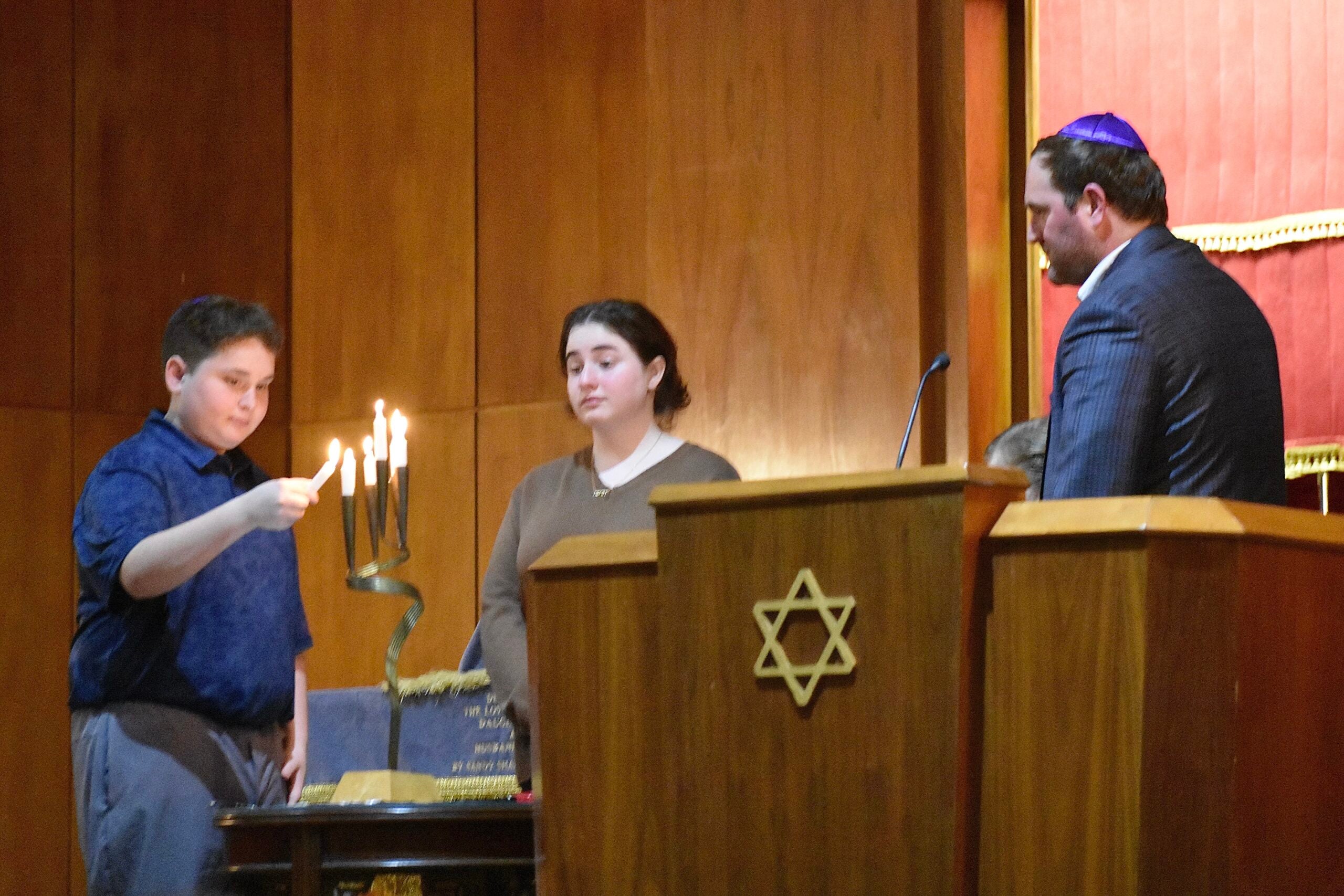To remember the past and shape the future, the Adas Yeshurun Synagogue invited the Jewish community to a religious service in honor of International Holocaust Remembrance Day on Saturday evening, Jan. 27.
Created by the United Nations General Assembly in celebration of Auschwitz-Birkenau’s liberation on Jan. 27, 1945, International Holocaust Remembrance Day is recognized around the globe as a time to remember the six million Jewish victims of the Holocaust and the other millions of victims of Nazi persecution.
Led by Rabbi David Sirull, the spiritual leader of the Adas Yeshurun Synagogue, the religious service featured Hebrew readings, songs, passages and real-life accounts from victims and survivors of Nazi torture.
“We have come here to remember those who cannot be forgotten. We have come to speak of that which cannot be spoken but must not be left unsaid,” stated one the service’s read-aloud passage, originally written by Rabbi Reuven Hammer.

Following the lighting of six candles by children, in honor of the many youth that were killed by Nazi soldiers, attendees took turns reading different verses and passages.
“What befell the people of Israel in Nazi Europe, however, is beyond classification, and what confronted its sons and daughters defies description,” stated another passage from the service. “Untold numbers were forced out of their homes, torn from their families, trampled in the dust, worked to death.”
Among the service’s attending mourners were many older adults and local rabbis who solemnly shed tears in the pews for those who were lost to the “nightmarish terror.”
“The past is becoming blurred, replaced only by the present, today, right now, this moment …,” another featured passage from the service stated, which was from a scrap of paper found between two wooden beds. “… the present fills all of our existence. About the future no one speaks, and with difficulty I remember the past.”

Weaving together a memory of countless suffering and asking for God’s divine assistance, the service highlighted how many victims were left – and continue – to wonder why.
“‘Why, God, why? Why us? Why them? Why now? Why in that way?’ are left suspended in midair, hovering over all human deeds, and there is no response,” stated another read-aloud passage. “Time will tell what we have learned; only time will reveal whether we truly have listened to the voice of the blood of the slaughtered crying out from the earth.”
MORE: Westabou Montessori School informs public about curricula through shopping event
Through hearing the memories of people who stuffed their shoes with dirt and stood tall to appear stronger, which prevented them from being killed by Nazis for looking weak or sick, Sirull said he hoped attendees left the service with a sense of how events of violence and persecution can turn to senseless extremes quickly when overlooked by others.
“Even today, when you see something that seems like it’s not so awful, things can escalate very quickly. We have to always be mindful of that,” he said. “People should take every step possible, in our time, to ensure such atrocities don’t occur again in our day, because we see ugliness and evil rear its ugly head from time to time. We have to keep it in its place.”
As the Jewish community witnesses an ongoing rise of antisemitism worldwide and new generations starting to deny the Holocaust’s occurrence altogether, many followers of the faith believe it is now more important than ever to observe the international remembrance day to prevent future genocide and keep a watchful eye.
“Hopefully, programs like this are reminders, because nobody expected for the Holocaust to happen when it did,” said Sirull. “Even while it was occurring, people were in disbelief – even Jewish people … nobody would ever have imagined it.”
To Sirull, people’s growing refusal of the Holocaust makes no sense and causes him to wonder how anyone can contradict the thoroughly documented event.

“There’s so much evidence – so many stories. There are museums all over the world, pictures and videos. Matter of fact, the Germans documented it better than anyone,” he said. “There are records of people who perished. I just don’t understand Holocaust denial.”
For participant Rabbi Remy Liverman, the service showcased the everpresent significance of those who died. Even if victims’ names were not remembered, their hardship and the injustice of the Holocaust was.
“This was just a wonderful service … it was really touching,” she said. “I saw long ago, and it stayed with me, that if you were to stay silent for one minute for every victim, you would stay silent for 11 years.”
Liz Wright is a staff writer covering education, lifestyle and general assignments for The Augusta Press. Reach her at liz@theaugustapress.com










